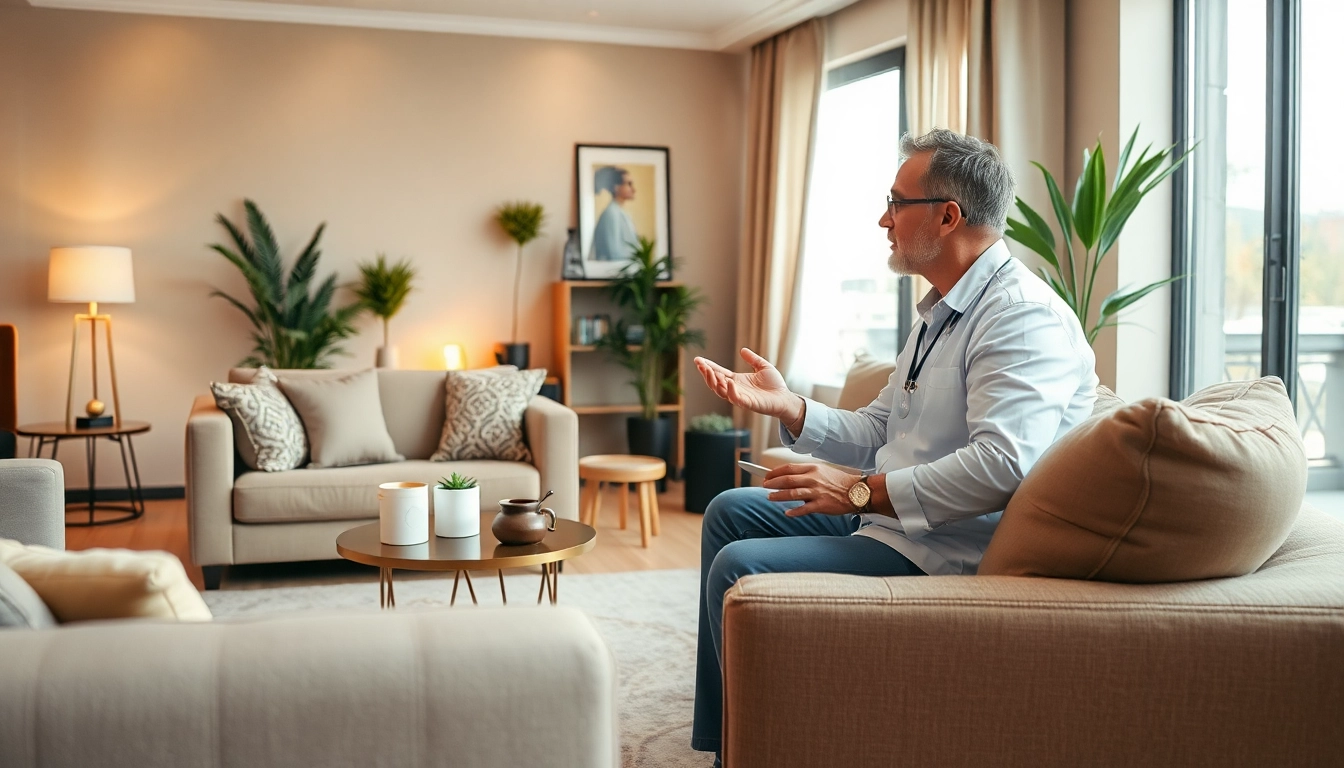Understanding Psychotherapy in Dubai
Psychotherapy is increasingly recognized as a fundamental aspect of mental health care, crucial for individuals seeking to address life challenges, emotional distress, and various mental health disorders. In psychotherapy dubai, a growing number of practitioners offer a range of services designed to cater to diverse psychological needs. This article serves as a comprehensive guide to understanding psychotherapy in Dubai, equipping readers with valuable insights into its importance, types, and the benefits it provides.
What is Psychotherapy?
Psychotherapy, often referred to as “talk therapy,” involves the treatment of emotional or psychological challenges through dialogue between a therapist and a patient. It is a structured process that allows individuals to explore their thoughts, feelings, and behaviors in a safe environment. Psychotherapy can aid in understanding and regulating emotions, developing coping strategies for stress and anxiety, and fostering personal growth.
The Importance of Mental Health
In contemporary society, the significance of mental health has gained widespread recognition. Mental health encompasses our emotional, psychological, and social well-being, affecting how we think, feel, and act. Poor mental health can lead to debilitating conditions such as anxiety disorders, depression, and interpersonal problems. It is essential to understand that mental health is just as important as physical health; thus, accessing psychotherapy services can be incredibly beneficial.
Types of Psychotherapy Available in Dubai
Dubai boasts a rich tapestry of psychotherapy services, catering to various psychological needs through different therapeutic modalities. Among the most prevalent are:
- Cognitive Behavioral Therapy (CBT): This goal-oriented approach focuses on changing negative thought patterns to improve emotional regulation and develop coping strategies.
- Interpersonal Therapy (IPT): IPT primarily addresses interpersonal issues and relationship dynamics, helping individuals enhance their communication skills for better relationships.
- Psychodynamic Therapy: This therapy focuses on uncovering unconscious processes and past experiences that shape current behavior and feelings, giving patients insight into their emotional struggles.
- Humanistic Therapy: Emphasizing personal growth, humanistic therapy encourages individuals to explore their true selves, fostering self-acceptance and a better understanding of oneself.
- Family Therapy: This therapeutic style involves family members to address issues affecting their relationships, working towards improving the family dynamics.
Common Mental Health Issues Addressed
Anxiety Disorders
Anxiety disorders are among the most common mental health issues faced by individuals in Dubai. These disorders range from Generalized Anxiety Disorder (GAD) to Social Anxiety Disorder and Panic Disorder. Symptoms often manifest as excessive worry, unease, and physical symptoms like increased heart rate or sweating. Psychotherapy can be a vital resource in managing these conditions, helping individuals to learn to manage their anxiety more effectively through techniques such as cognitive restructuring and exposure therapy.
Depression
Depression is another prevalent mental health issue that affects individuals across all age groups. It can present with a variety of symptoms, including persistent sadness, loss of interest in activities, changes in appetite, and feelings of worthlessness. Psychotherapy can facilitate recovery through strategies designed to help individuals understand the root causes of their depression, develop coping mechanisms, and foster resilience against future episodes.
Stress Management Techniques
In our fast-paced world, stress is a common experience that can have serious implications if not managed properly. Psychotherapy can equip individuals with effective stress management techniques. Therapists often teach relaxation techniques, mindfulness practices, and cognitive-behavioral skills that help individuals approach stressful situations with a healthier mindset. Learning to manage stress effectively can improve overall mental health and enhance quality of life.
Finding the Right Psychotherapist
Qualifications to Look For
When seeking psychotherapy services in Dubai, it is crucial to find a qualified professional. Key qualifications to consider include:
- Relevant Credentials: Look for practitioners with appropriate licenses or certifications in psychology, psychotherapy, or counseling.
- Experience: Consider therapists with experience in treating specific issues you may be facing. An expert in anxiety may not be the best fit for someone struggling with relationship dynamics.
- Continued Education: A commitment to ongoing education and training reflects a therapist’s dedication to staying current with therapeutic approaches and best practices.
Questions to Ask During Initial Consultations
During your initial consultation, it is essential to address any concerns and gather relevant information. Important questions to consider include:
- What is your approach to therapy for issues like mine?
- What are your credentials and experience in this area?
- How do you measure progress within therapy?
- How often will we meet, and what can I expect during our sessions?
Assessing Compatibility and Approach
Finding the right therapist involves not just qualifications but also personal compatibility. Building a good rapport with your therapist can significantly influence the effectiveness of therapy. Factors such as communication styles, therapeutic approaches, and personal comfort should be considered. It is entirely acceptable to consult multiple therapists before making a decision.
Benefits of Psychotherapy for Various Groups
Children and Adolescents
Children and adolescents can greatly benefit from psychotherapy, particularly as they navigate the complexities of growing up. Therapy can help youth develop coping strategies for various challenges, such as bullying, academic pressure, and familial changes. Therapeutic play and art therapy are often utilized to allow younger individuals to express their emotions and experiences safely.
Adults Facing Life Transitions
Life transitions, such as moving to a new country, changing jobs, or experiencing a divorce, can be stressful and disorienting. Psychotherapy provides a valuable space for adults facing these transitions to process their feelings, set new goals, and discover healthy coping strategies. By addressing the accompanying emotional pain, individuals can emerge from transitions with renewed clarity and resilience.
Couples and Family Therapy
Healthy relationships are vital to emotional well-being. Couple and family therapy addresses dynamics within relationships and between family members. Such therapies facilitate communication, resolve conflicts, and foster understanding, allowing families to rebuild connections and work towards common goals. Learning to communicate effectively can lead to stronger relationships and improved mental health for all members involved.
Taking Action: Steps to Begin Your Journey
Preparing for Your First Session
Preparation for your first therapy session can help maximize the therapeutic experience. Important steps include reflecting on what you want to achieve from therapy and being open about your concerns and expectations. It can be beneficial to jot down key points or worries you want to discuss. This not only aids in communication but also helps establish a constructive framework for your sessions.
Understanding Session Frequency and Format
The frequency and format of therapy sessions can vary based on individual needs and therapeutic goals. Sessions typically last from 45 minutes to an hour, with a common frequency of once a week. Some individuals may benefit from more frequent sessions, while others may find bi-weekly meetings sufficient. Discuss expectations early on with your therapist to create a suitable plan.
Setting Personal Goals for Therapy
Establishing clear goals is essential in the therapeutic process. By identifying specific areas of concern and desired outcomes, individuals can create a roadmap for their therapy journey. This may involve working towards reducing symptoms, improving relationships, or enhancing self-esteem. Goal-oriented therapy provides structure and measurable progress, making the experience more satisfying and meaningful.















Leave a Reply